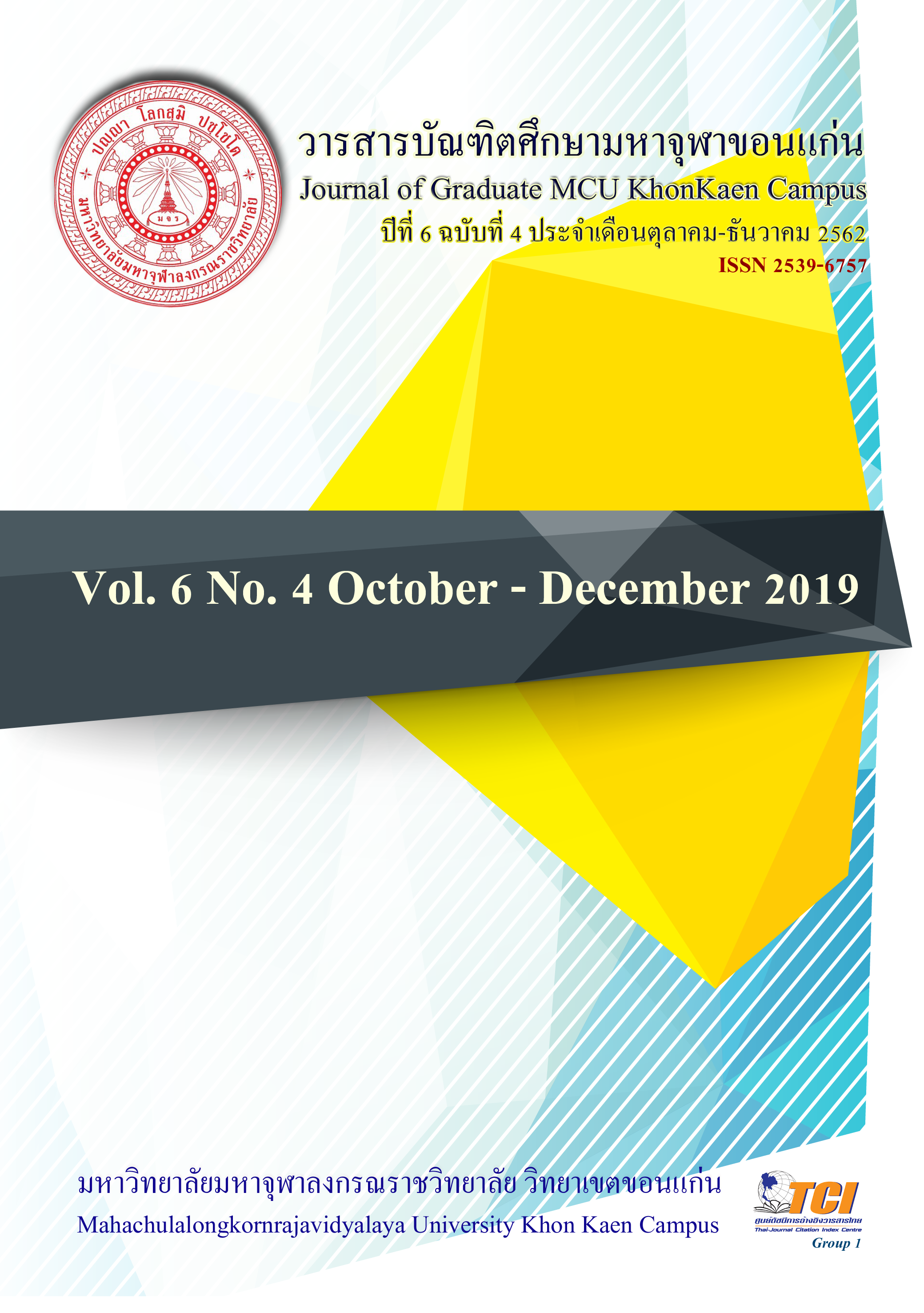Strategies for Teacher Development in Learning Management for Small-sized Primary Schools
Main Article Content
Abstract
The purposes of this research were to: 1) study the teacher development components in learning management for small-sized primary schools 2) study current conditions and desirable conditions of teacher development in learning management for small-sized primary schools and 3) develop teacher development strategies for learning management of small-sized primary schools The research was mixed-method approach. The sample group was a small-sized primary schools in the Northeastern region. Data informants were school administrators and teachers with total number of 678 by using multi-stage sampling. The instruments used in this research were questionnaires with validity of 0.91, standard deviation (S.D.), Item-Objective Congruence Index:(IOC) and PNIModified .
The research found that :
- The components of teacher development in learning management for small-sized primary schools comprised 4 components, namely : 1) learning activity management 2) measurement and evaluation 3) curriculum development and 4) environment management
- The current state of teacher development in learning management for small-sized primary schools, in all, was at mid-level. While considering each aspect, it was found that current conditions of all aspects were of moderate practices. As for the desirable conditions of teacher development in learning management for small-sized primary schools, in all, at a high level While considering each item, it was found that all desirable conditions were at high level.
- Development of teacher development strategies in learning management for small-sized primary schools consisted of 4 strategies with 27 measures and 33 indicators. Strategy 1: creating learning atmosphere with 4 measures and 9 indicators. Strategy 2: Measurement and evaluation with 4 measures, and 4 indicators. Strategy 3 : Learning process adjustment with 10 measures and 10 indicators, and Strategy 4 : Curriculum development with 9 measures and 10 indicators.
Article Details
References
Area in the Northeast. Educational Administration Journal Srinakharinwirot University, 11(20), 98-109.
Kanokon Somprat. (2015). Leadership and learning leadership for school Principals. (2nd ed.). Khonkaen : Printing
factory Nana Witthaya.
Kruna p̣humali, et al. (2014). Administration affecting the effectiveness of small schools in the eastern region. Journal
of Graduate Studies Valaya Alongkorn Rajabhat University under Royal Patronage, 8(1), 158-172.
Office of the Education Council. (2012). Report of research and development of teacher development model and
school administrators using school as a base in small schools Phase 1. Bangkok: Prikwarn Graphic.
Office of the Basic Education Commission. (2014). Operation model Small school management. Online. Retrieved July
31, 2018. from : plan.lpg3.go.th/.../ Operation model Small school management33.docx.
Office of the Basic Education Commission. (2018). Information System for Educational Administration. Online.
Retrieved July 21, 2018 from : https://www.obec.go.th/
Phiphat Phuphiyo. (2013). Small school management strategies for leapfrog development. Faculty of Education:
Chulalongkorn University.
Tassaphon Pumsida, et al. (2016). Presentation of small schooladministration strategies To upgrade Quality of
education.Doctor of Philosophy Thesis Faculty of Management Studies Chulalongkorn University.
Thaksin Sitthisak. (2012).Systemic factors and effective educational management guideline of small schools Under
Office of the Basic Education Commission. Bachelor of Education, Doctor of Philosophy Faculty of Education
Kasetsart University.
Thawatchai Tanguthairuang, et al. (2015). Causal relationship model of school effectiveness Small primary school
Under the Office of the Basic Education Commission in the Central Region Of Thailand. Suan Dusit Rajabhat
University Research, 10(3), 1-20.
Thira Runcharoen. (2012). Learning Personnel Development Strategy. Bangkok : Publisher Kkhawfang.
Werayut Chatakarn. (2008). Administrative techniques for professional education administrators. Bangkok:
Chulalongkorn University Press.

